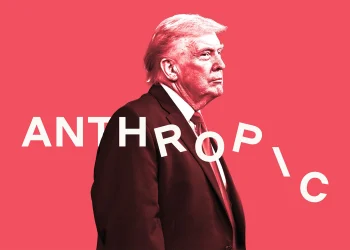The continent’s fintech sector has evolved from a niche industry into a powerful force reshaping how millions access, save, and transfer money. Gone are the days when financial services were accessible only to the privileged few in urban centers.
The numbers tell a compelling story. According to the European Investment Bank, fintech companies in Africa have nearly tripled since 2020, growing from 450 to over 1,260 by early 2024. This explosive growth is responding to real needs across a continent where traditional banking infrastructure has often fallen short.
But what’s driving this transformation, and where is it headed? As we look to the year ahead, several key trends emerge that will shape the future of African fintech.
Mobile Money’s Unstoppable Momentum

Mobile money remains Africa’s most distinctive fintech success story. The latest data from GSMA’s 2024 State of the Industry Report reveals impressive growth metrics: Africa dominated global mobile money activity with 169 live services supporting 856 million registered accounts, representing a 19% increase year-on-year.
The transaction volume reached 62 billion in 2023 (up 28%), with a value of $919 billion (up 12%). These represent millions of Africans gaining access to financial services for the first time.
West Africa has emerged as a particular hotspot, with Nigeria, Ghana, and Senegal driving growth as registered accounts in this region jumped 23% to 356 million. The mobile money infrastructure continues to expand, with registered agents growing by 22% continent-wide to reach 18.6 million in 2023.
The impact extends far beyond simple money transfers. International remittances processed through mobile money grew by 33% to $29 billion in 2023, while merchant payments increased by 14% to $74 billion. This diversification of services signals mobile money’s evolution from a basic transfer tool to a comprehensive financial platform.
The Pivot to Profitability
The African fintech funding has changed dramatically. After years of abundant capital flowing into the sector, investors have become more selective, focusing on sustainable business models rather than rapid user acquisition.
McKinsey research indicates that fintech funding in Africa contracted by 37% from 2022 to 2023. This trend continued into 2024, with first-half funding down 51% compared to the same period in 2023, dropping from $864 million to $419 million.
This funding winter has triggered a wave of consolidation across the sector. During the first quarter of 2024 alone, eight fintech deals were struck in Africa, nearly matching the twelve deals completed throughout the entire previous year.
Companies are responding by streamlining operations, focusing on core services, and improving unit economics. The emphasis has shifted from “growth at all costs” to sustainable expansion built on solid fundamentals.
Despite these challenges, the long-term outlook remains promising. McKinsey projects that fintech revenue in Africa could reach $47 billion by 2028, approximately five times its 2023 value. This growth potential exists even with current fintech penetration between just 5-6% of the market (compared to 6-16% in more developed markets like Germany and the United States).
Financial Inclusion Through Innovation
Expanding access to financial services will continue to drive innovation across African fintech. With private sector credit falling from 56% of GDP in 2007 to just 36% in 2022, there’s substantial room for growth in bringing more Africans into the formal financial system.
Buy Now, Pay Later (BNPL) arrangements are gaining significant traction. The market in Africa and the Middle East was valued at $15.5 billion in 2024, led by Nigeria, Egypt, Kenya, and South Africa. Market research estimates project growth to $33 billion by 2029, reflecting a 16.1% annual growth rate.
Alternative lending models are also flourishing. In Nigeria, over 250 fintech companies operate, with approximately 15% focused on small and medium-sized enterprise lending. These solutions leverage mobile technology and innovative risk assessment methods to extend credit to previously underserved populations.
The success of these models stems from their ability to overcome traditional barriers to financial inclusion. Fintechs can profitably serve customer segments that banks have historically overlooked by utilizing alternative data sources and mobile distribution channels.
Cryptocurrency and Virtual Asset Regulation

Africa’s crypto adoption continues to grow despite global market volatility. According to Chainalysis, Nigeria ranked as the second-biggest adopter of cryptocurrency in 2024, while Ethiopia (26), Kenya (28), and South Africa (30) all made the global top 30.
What’s changing so fast is the regulatory policy surrounding digital assets. Countries across Africa are developing frameworks that balance innovation with consumer protection:
- South Africa has been proactive, with 75 Crypto Asset Service Providers receiving licenses by April 2024
- Nigeria granted approval to two local cryptocurrency exchanges in September 2024 through its Accelerated Regulatory Incubation Program
- Mauritius implemented the Virtual Assets and Initial Token Offering Services Act in 2022
- Namibia enacted the Virtual Assets Act in 2023, requiring all Virtual Asset Service Providers to obtain licenses
These regulatory developments create clarity for both users and service providers, potentially revealing further institutional investment in the sector. The trend suggests a maturation of the market as it moves from an unregulated frontier to a structured part of the financial ecosystem.
Open Finance and API Ecosystems

Open finance is gaining momentum across Africa, with Nigeria and South Africa leading regulatory developments. Nigeria’s Central Bank released Operational Guidelines for Open Banking in March 2023, establishing a four-tiered risk management system based on participants’ maturity levels.
South Africa is developing a comprehensive framework through three key documents from the Financial Sector Conduct Authority, including a draft Position Paper on Open Finance that identifies four types of participants for regulatory oversight.
These initiatives enable secure data sharing between financial institutions and third-party providers. This boosts innovation and competition. The result is a more integrated financial ecosystem where consumers can access and control their financial data across multiple platforms.
Open finance creates opportunities for specialized services to plug into existing financial infrastructure rather than building everything from scratch. This approach dramatically lowers barriers to entry for new fintech innovations while improving service options for consumers.
Cybersecurity as a Critical Priority

Africa faces digital vulnerabilities, with organizations experiencing the highest number of weekly cyberattacks per organization globally in 2023.
The financial impact is substantial. Nigeria lost over $500 million to cybercrime in 2022, while Kenya reported losses of $83 million in 2023. These figures highlight the urgent need for enhanced security measures across the fintech ecosystem.
Kenya has been proactive with its Computer Misuse and Cybercrimes Act and Data Protection Act, providing a framework for addressing digital threats. However, many African nations still lack comprehensive cybersecurity legislation, creating both vulnerabilities and opportunities for industry-led solutions.
The next 12 months will likely see increased investment in cybersecurity infrastructure and talent as the sector matures and regulatory requirements tighten. Companies that prioritize security will build trust with consumers and gain competitive advantages in the market.
Strategic Partnerships is Changing the Fintech Ecosystem
The African fintech ecosystem is characterized by strategic partnerships that leverage complementary strengths. Three main partnership models are emerging:
- Fintech-bank partnerships that combine innovative technology with established infrastructure and regulatory compliance
- Fintech-telco collaborations that expand access to financial services beyond traditional mobile money offerings
- Bank-telco arrangements that use extensive mobile network infrastructure to improve distribution of financial products
These partnerships make it easier to grow quickly by bringing together the flexibility and innovation of fintechs with the resources and wide reach of more established companies. For example, in the logistics sector, Nigerian mobility fintech Moove offers vehicle financing integrated into ride-hailing platforms, recently securing funding from Uber.
The growth of open banking frameworks will likely accelerate these partnerships. This will open new opportunities for specialized services to connect and work more seamlessly with larger financial systems.
The Future of African Fintech
Despite current funding challenges, Africa’s fintech sector maintains strong fundamentals for continued growth. The combination of favorable demographics, increasing digital adoption, and substantial unmet financial needs creates fertile ground for innovation.
Despite the current funding challenges, Africa’s fintech sector still has a lot going for it. The continent’s young, growing population, the rapid rise in digital adoption, and the huge gap in access to financial services all come together to create a strong foundation for innovation and long-term growth.
Several factors will shape success in this evolving ecosystem:
- Financial discipline will be critical, with investors prioritizing positive unit economics and clear paths to profitability
- Untapped opportunities remain abundant in areas like cross-border payments, asset-backed lending, and embedded finance
- Vertical specialization may prove more effective than geographical expansion, with significant opportunities to deepen penetration in core markets
- Strong governance and compliance will differentiate companies as regulatory environments mature
McKinsey projects that African fintech penetration could reach 15% by 2028 (similar to Kenya’s current level), up from 5-6% today. This would represent a massive expansion of financial access across the continent.
As African fintech moves into its next phase of growth, with fresh, homegrown solutions to real financial challenges, the sector is proving it has the power to influence markets far beyond the continent.
This article was rewritten with the aid of AI.
At Techsoma, we embrace AI and understand our role in providing context, driving narrative and changing culture.















